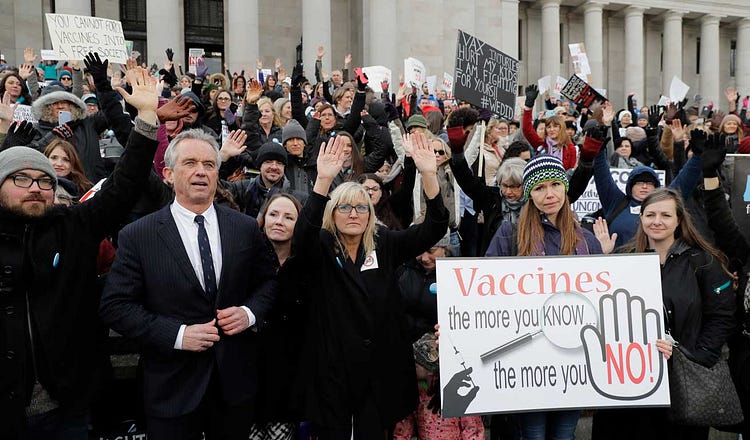
The Secretary of Health and Human Services oversees an enormous federal agency in charge of Medicare, Medicaid, federally funded biomedical research, public health, and drug approval. In other words, it’s a very important job—and the health of the American people is in that person’s hands.
In choosing Robert F. Kennedy Jr. for the role, president-elect Donald Trump has made a profound mistake.
That is not because I believe the status quo must be defended.
Those who point out that America is startlingly unhealthy, with outcomes worse than many other developed countries, are right. Look no further than the sorry state of U.S. life expectancy. We have problems—perhaps most of all when it comes to the health of our children—and those problems require solutions.
But the problem with RFK Jr. is not that he wants to change things. It’s that he is uniquely ill-suited to deliver the change that is needed.
Why? RFK Jr. was nominated precisely because of his stated positions on a wide range of health and scientific matters: vaccines, AIDS, the reputed harms of electromagnetic radiation from Wi-Fi and cell phones, and many other topics. So these views are central to assessing his suitability for the role.
The scientific process requires skepticism about prevailing consensus. Some Kennedy supporters see his skepticism on a wide variety of scientific and medical issues, including policies during the Covid epidemic, as a positive that will enable him to disrupt the medical and research establishment. And as pointed out in The Free Press, some of his stated positions are held by other nations. They also may well be correct, and are certainly valid topics of debate.
But the task that we face is not constructing a scorecard of his positions, tabulating them as correct vs. incorrect, plausible vs. crazy. Our task is to evaluate his qualifications as a potential leader of HHS. I argue that by repeatedly making claims about important issues that are known to be false or that are devoid of evidence, RFK Jr. has disqualified himself from this position.
I will focus on two examples, though I could cite more.
First, vaccines.


